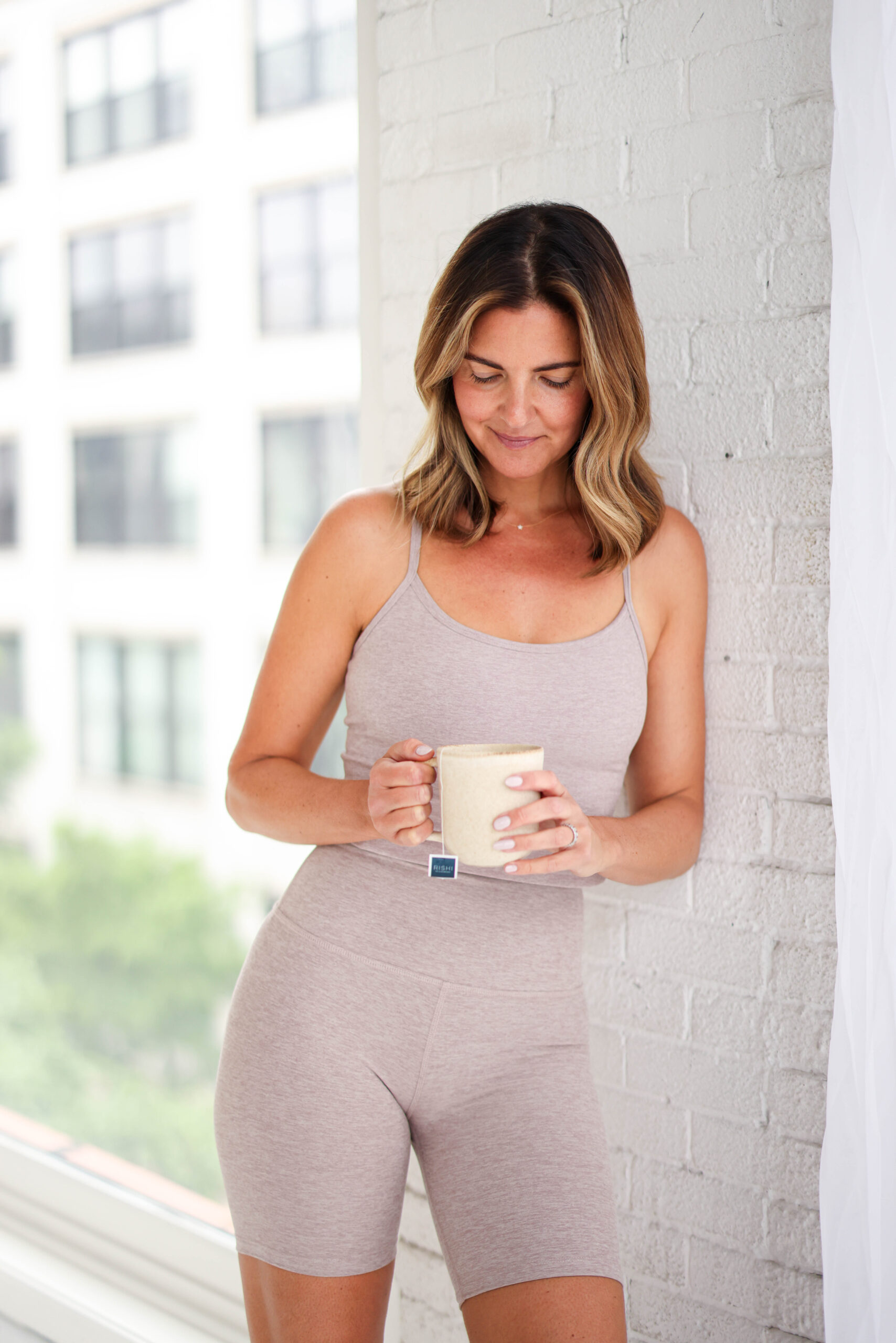
Why am I always exhausted (and what can I do about it?)
For a lot of my adult life, I was exhausted.
Not tired. Exhausted. Even if I got 8 hours of sleep, I’d still be tired the next day.
For years I attributed it to the fact that I was the mother to four young kids, my life was busy, and honestly just everyday stress. I thought everyone was exhausted. And waking up to an alarm, rushing to pour a cup of coffee was just part of being a grown-up.
But a few years ago I finally asked myself the hard question; “why am I always exhausted?”.
What I started to learn was that being rested, feeling energized and awake, required so much more than just getting 8 hours of sleep each night. That sleep hygiene, deep rest, and getting a mix of active and passive rest were keys to no longer feeling that constant sense of exhaustion.
Over the past several years, I’ve made getting good quality sleep and rest a priority. I now sleep sounder, have more energy, and wake up before my alarm (without needing that cup of coffee).
So if you’re feeling anything like how I was; getting 8 hours of sleep, and still wondering “Why am I always exhausted?”, here are a few things that may help.
What you take out, you must put back in
Our bodies are designed to be in balance. We understand that in so many parts of our physical world. Calories in, calories out. Money earned, money spent. Always striving for balance. And yet, when it comes to sleep or rest, we somehow think we can trick our bodies. That we can “optimize” our days, squeezing in “one more thing”. That somehow only getting 5 hours of sleep is a badge of honor. And we push ourselves (physically and mentally) past the point of balance and we immediately feel exhausted (because we are).
Our body’s energy levels are meant to be in balance. So if we exert a certain amount of energy (either mentally or physically), we have to add in an equal amount of rest, and an equal amount of play (pleasure).
We can think of our days as being divided into 8’s. 8 hours pushing. 8 hours resting. 8 hours enjoying.
We seem to all understand what 8 hours of pushing looks like; working, working out, doing things that require mental or physical focus and energy.
But rest and pleasure are a little harder. When we think about rest, there are two types of rest the body needs.
Active Rest & Passive Rest
We need both.
Most of us don’t realize that our bodies need passive AND active rest.
Passive rest includes things like sleeping, napping and other forms of rest where our body and minds are completely shut off. This is where most of us focus (and where many of us stop).
But where many of us are lacking, and what our bodies are really craving is what’s known as active rest.
What is Active Rest?
Active rest are things when your mind is at rest, but you are awake and at ease. It can include things like yoga, meditation, body work, and walking in nature.
Activities where your mind is relaxed, but you aren’t sleeping.
Our bodies need large chunks of active rest in order to regulate itself.
Many of us tend to “go, go, go”. Moving from being super active to all of a sudden shutting the lights off and wondering why we can’t fall asleep. If this is you, you’re probably not getting enough active rest.
Active rest is wonderful for body regulation and turning on your parasympathetic nervous system. Calming down your adrenals and you from fight or flight into rest and digest.
Unfortunately, we don’t build enough active rest into our days. So our bodies stay in stress mode (when the sympathetic nervous system is active) and we feel this overwhelming sense of exhaustion. Because it’s exhausting for our bodies to live in this state.
How to get more active rest
To ever feel truly rested, we need to build in more active rest. Here are a few ideas to get your started.
- Get grounded in nature. Even just in your own backyard. Get your feet in nature. Literally. Take off your shoes and get your feet in the earth. The earth’s energy is very stabilizing and grounding. I tell my kids all the time it’s Mother Nature’s original battery.
- Meditate. Either before your day gets going, or before you go to bed. Try for 10-15 minutes. Don’t worry if your mind wanders. Just the action of sitting (without being on a phone or in front of a T.V) is enough. If you need help getting started, here are a few simple tools
- Add in mindful movement. Yoga, qigong, and tai chi are wonderful for linking your breath with movement. Don’t worry so much about how the movements look, rather than how it feels in your body. Paying attention to your breath, taking long deep full inhales and exhales
- Get out for a walk. without your phone, a podcast, or music. Just you and your breath. Noticing your feet touching the pavement. Feel yourself ground with each step.
- Take a warm Epsom salt bath. Water is a wonderful calming and grounding tool.
- Garden, bake, get your hands in something. Dirt, dough, it doesn’t matter. The feeling of touch, moving your hands through something physical is very soothing to the nervous system.
- Play with your artistic side. Creativity and creation are so good for calming your nerves and turning on the right side of your brain, turning off your “to do” lists and allowing yourself to truly be “in the moment”. Don’t worry about what you create, it’s just playing for the sake of play (wild idea, I know).
Improving our Passive Rest – sleep hygiene
When it comes to passive rest, sleeping, and napping, there are a few things we can do to help get better quality rest.
- Rise and set with the sun. This sounds so simple and yet most of us don’t do this. Our body is designed to work with nature. To wake with the rising of the sun and go to sleep as it’s setting. I know for many of us, we can’t go to bed at 5pm if you live in the northern hemisphere during the winter months. But, we can do a much better job at trying to assimilate with the sun. Which means going to bed earlier during the winter and doing our best to rise with the sun. Doing this helps our body fall in line with our natural circadian rhythm.
- Create an evening ritual. I‘m a big proponent of morning routines. But I’m equally as passionate about evening routines. Creating sacred time/space in your bedroom in the evening to unwind. Doing these rituals nightly helps cue your body/mind that it’s time for rest. Just like we have bedtime routines for little kids, we are the same. Our body uses cues to tell us when to shut down.
- Get off screens an hour before bed. As part of your evening routine, do everything you an to minimize screens before bed. I now charge my phone in another room so it’s not tempting in the evenings to respond to every incoming text. The blue light from screens is extremely disruptive to our circadian rhythm.
- Caffeine delay. If you can, delay your first cup of tea/coffee for an hour or so after waking. Delayed caffeine intake has been shown to help the body’s natural cortisol spike that we need to tell our systems it’s “go time”. If we have caffeine as soon as we wake, our body doens’t give us the spike of cortisol we need and then our cortisol levels are imbalanced for the day (including into the evening hours).
- Get cold and dark. Just this past year I have started sleeping with a sleep mask and I am shocked at the difference I feel. I go right into a deep sleep (even on planes). It’s wild how just taking the sense away really does something to your body. We’ve also started lowering the heat in our home to 65 degrees at night (which is the optimal temp for sleep). It sounds cold, but it’s made a really big difference (for our kids too).
- Early to bed, early to rise. I’ve said this a million times before, but going to bed before you’re exhausted is so important. Just like babies, it’s harder for our systems to turn off if we’re overstimulated. So think about skipping that extra episode on Netflix and calling it quits before you’re rubbing your eyes. And as best as you can, try to stick to the same bedtime every night. The earlier you climb into bed, the earlier it is to rise with the sun naturally. Even just a 30 minute shift earlier in your bedtime can make a huge difference in the quality of your sleep.
I hope these tips help a little in feeling a little less exhausted, and a little more well rested. Remember too that more than anything, just giving yourself permission to “turn off” will make such a big difference in our feelings of overwhelm and exhaustion. Unfortunately we live in a society where we’re told we have to “do it all” and for the most part, “do it all alone”. But it’s not true. Listen to your body. Trust your heart. Slow down when you need it. And more than anything, give yourself permission to truly rest.
You deserve it.
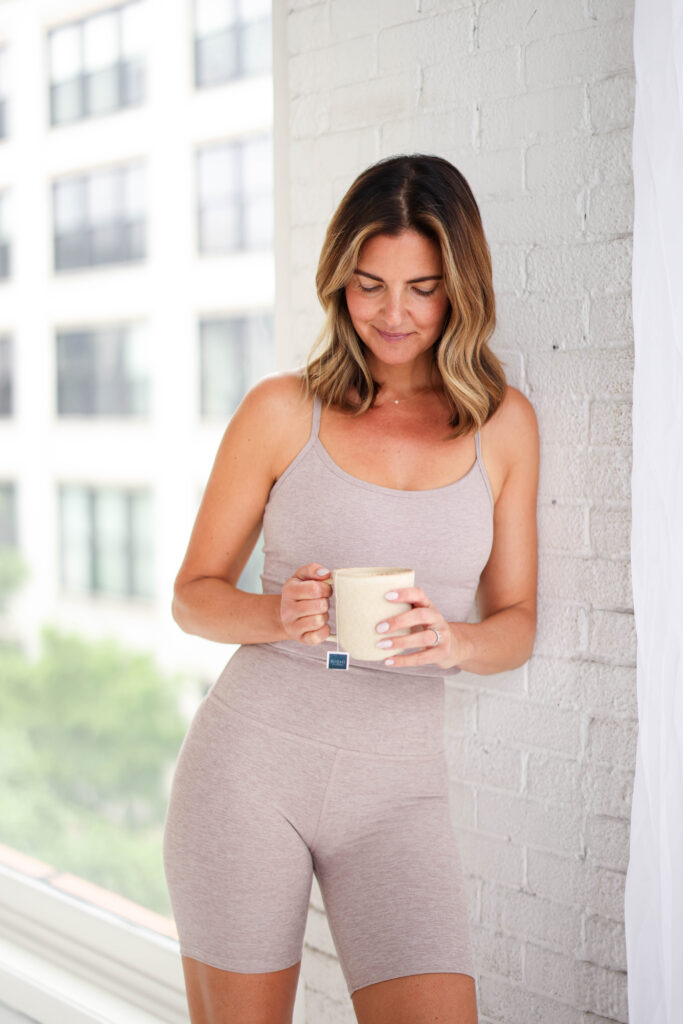

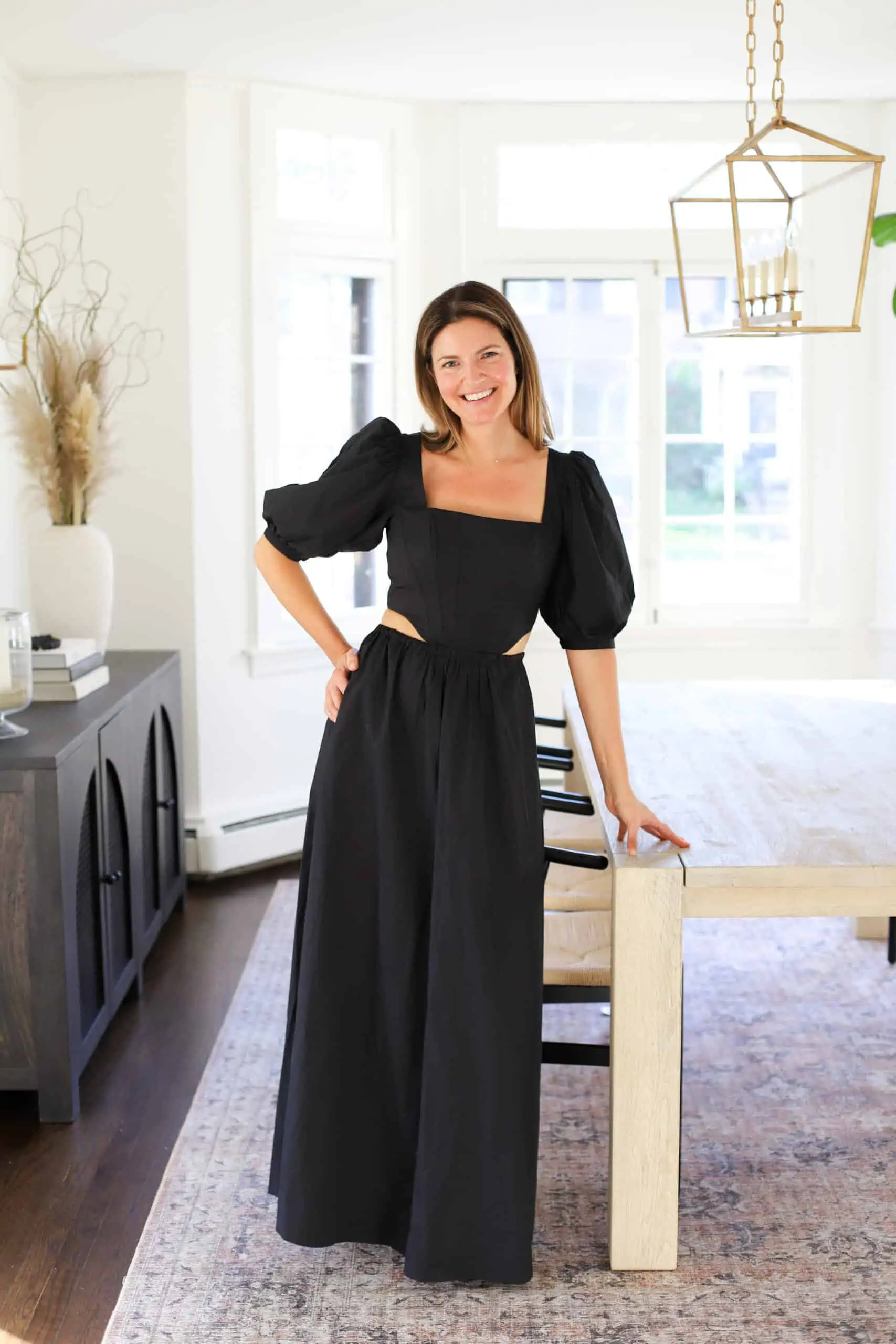
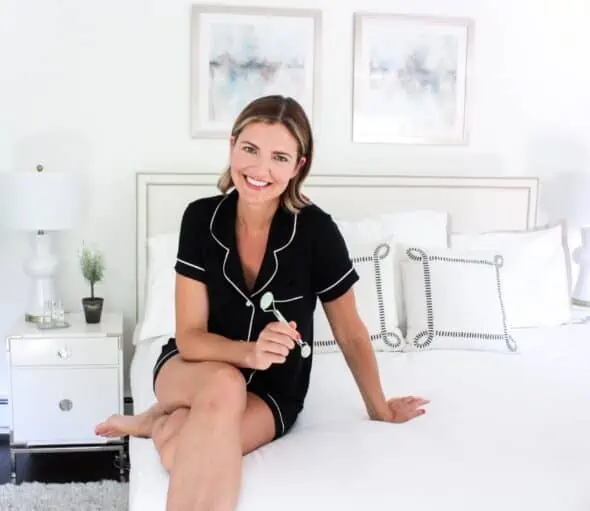
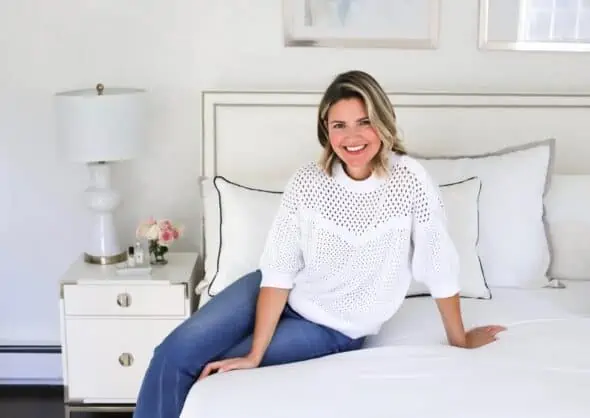
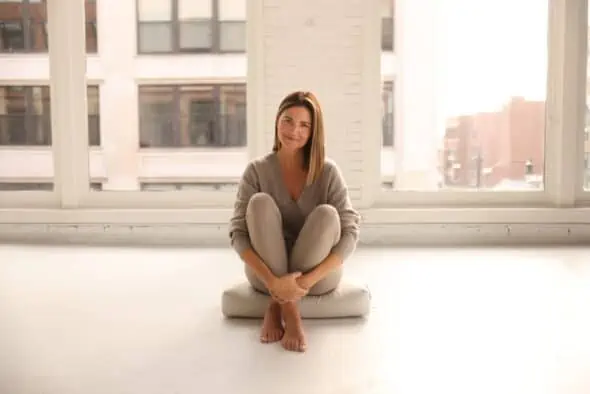
LEAVE A COMMENT & RATE
Love your newsletters, posts and all of it! Thank you for always sharing your vulnerabilities and being so open and loving. You are a truly genuine soul. xoxo